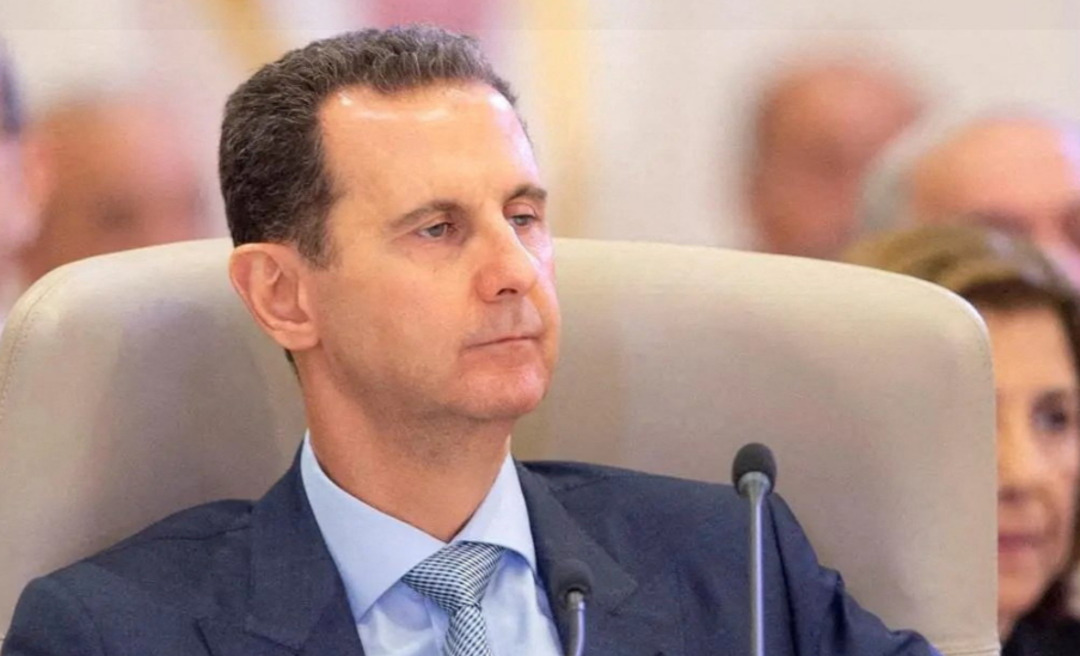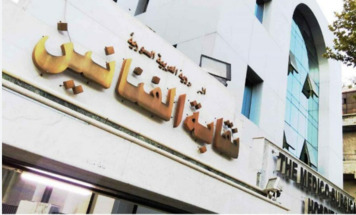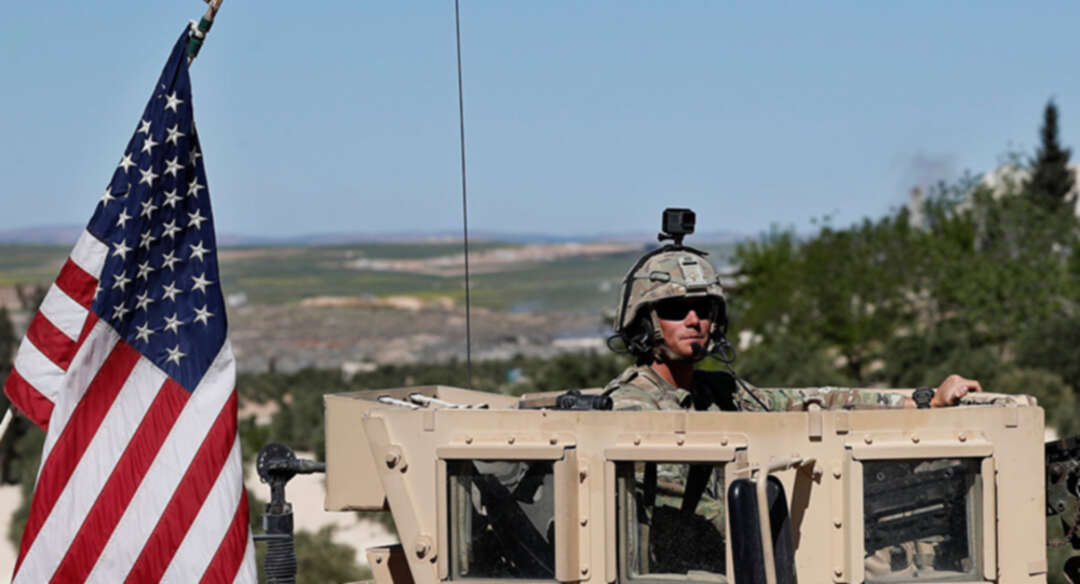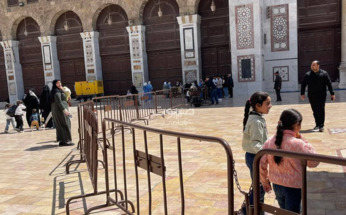-
Assad Calls Iranian Attack on Israel "Strong" and a "Lesson"

Syrian President Bashar al-Assad said on Saturday that the Iranian attack on Israel was "strong" and taught it a "lesson," referring to Tehran's firing of nearly 200 missiles at the state of Israel in response to the assassination of the head of Hamas' political bureau Ismail Haniyeh and Hezbollah Secretary-General Hassan Nasrallah.
During a meeting with Iranian Foreign Minister Abbas Araghchi in Damascus, Assad stated that "the Iranian response to what the Israeli entity has done in terms of repeated violations and attacks on the peoples of the region and the sovereignty of their countries was a strong response, giving a lesson that the axis of resistance is capable of deterring the enemy" and that it "will remain strong and steadfast."
Araghchi met with Assad and his Syrian counterpart Bassam Sabbagh in Damascus on Saturday. He arrived in the Syrian capital on the heels of a visit to Beirut.
Upon arriving in Syria, he emphasized the importance of reaching a simultaneous ceasefire in Lebanon and the Gaza Strip.
Araghchi told reporters, "The most important issue today is a ceasefire, particularly in Lebanon and Gaza," adding, "There are initiatives in this regard, and there have been consultations that we hope will be successful."
This is Araghchi’s first visit to Damascus since taking office and comes amid a significant escalation between Iran and the groups it supports on one side and Israel on the other.
He stated, "Our bilateral cooperation is a subject of very wide-ranging discussion. We have good relations with Syria in various economic, political, and cultural fields, so it is natural to review them."
He continued, "We are trying to remove existing obstacles and find new areas of cooperation and continue relations in a way that is better than in the past."
In recent months, Syrian analysts hosted by local media have spoken about "differences in viewpoints" between Iran and Syria on several issues, particularly the limited support from Tehran to Damascus in the economic and energy sectors amid the country's chronic economic crisis.
According to analysts, the divergence in viewpoints also extends to Iran's military presence following reports of its reduction of forces under the pressure of Israeli airstrikes that targeted its positions and Iranian leaders since the start of the war on Gaza.
You May Also Like
Popular Posts
Caricature
BENEFIT Sponsors Gulf Uni...
- April 17, 2025
BENEFIT, the Kingdom’s innovator and leading company in Fintech and electronic financial transactions service, has announced its sponsorship of the “Innovation and Sustainable Technology Solutions Competition (GU - IST Solutions), hosted by Gulf University at its main campus.
This strategic sponsorship reflects BENEFIT’s active role in advancing technological innovation and fostering sustainable solutions to future challenges. It also seeks to empower Bahraini youth by enhancing their skills, capabilities, and competitiveness in innovation and solution development—contributing meaningfully to the broader goals of sustainable development across all sectors.
As part of BENEFIT’s active involvement in the competition, the company has announced that Hanan Abdulla Hasan, Senior Manager of Public Relations and Communication, will serve on the competition’s supervisory committee. Her upcoming participation reflects BENEFIT’s forward-looking commitment to championing academic and professional excellence.
Commenting on the occasion, Hanan Abdulla Hasan, Senior Manager of Public Relations and Communication at BENEFIT, said, “We are privileged to support this pioneering initiative, which aligns seamlessly with BENEFIT’s enduring commitment to fostering innovation and nurturing the potential of Bahrain’s youth. Our participation is rooted in a deep sense of social responsibility and a firm belief in the pivotal role of innovation in shaping a sustainable future. Through such platforms, we seek to empower the next generation with the knowledge, skills, and foresight required to develop impactful solutions that address future challenges, in line with the United Nations Sustainable Development Goals 2030.”
Dr. Aseel Al Ayash Dean of the College of Engineering in Gulf University commented, “We extend our sincere gratitude to BENEFIT for their generous sponsorship and support of the Innovation and Sustainable Technology Solutions Competition. This contribution plays an instrumental role in helping us achieve the strategic goals of this initiative, namely, cultivating a culture of innovation and sustainability, encouraging efforts that address the imperatives of sustainable development, and enhancing the practical and professional capabilities of our students and participants.”
The event will bring together a diverse spectrum of participants, including secondary school students, university undergraduates, engineers, industry professionals, entrepreneurs, academic researchers, and subject matter experts representing a wide range of disciplines.
The competition seeks to inspire participants to develop and present innovative, sustainable technologies aimed at addressing pressing environmental, social, and economic challenges. It encourages the formulation of business models that integrate advanced technological solutions with core principles of sustainability. Moreover, it serves as a platform for emerging leaders, entrepreneurs, and innovators to contribute to the advancement of the Sustainable Development Goals, promote the ethos of responsible technology, and demonstrate its transformative potential across various sectors.
Attendees will have the opportunity to view a series of project presentations submitted by participants, covering diverse areas such as eco-friendly product design, smart and sustainable innovations, renewable energy technologies, water conservation and management, waste minimisation and recycling, green architectural solutions, and sustainable transportation systems. Outstanding projects will be formally recognised and awarded at the conclusion of the event.
opinion
Report
ads
Newsletter
Subscribe to our mailing list to get the new updates!






















